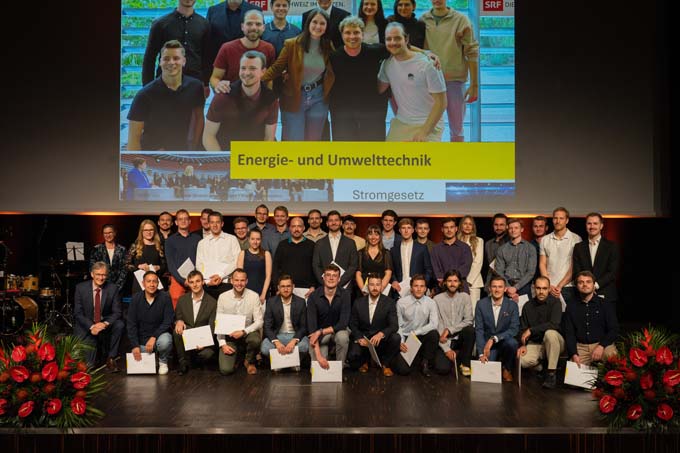More intelligence for the Internet of Things
The Internet of Things is transforming our planet, figuratively speaking, into a large information system: according to Gartner estimates, the number of so-called smart devices will rise to 200 billion in the coming years - and with it all the communication between the devices.

What began two years ago as a quiet revolution in the field of sensor and microprocessor technology is now a digital trend that is making its way into the most diverse areas of life: whether in one's own home, in the networking of refrigerator and mobile phone (Smart Home) or in production, where intelligent machines automate the manufacture of goods (Industry 4.0).
Big Data and IoT
With the growing number of networked devices, the amount of data to be evaluated that is generated during machine communication (keyword: Big Data) is naturally also increasing. In order to obtain information from this data, however, it must not only be collected, but also maintained and, above all, analyzed. The more automated communication between machines becomes, the more important the smooth exchange of information becomes. The Internet of Things therefore demands a solution to the Big Data problem and presents companies with even greater challenges than before. For IT system administrators, the workload increases at the same time, as each individual device in the Internet of Things must be monitored and its status tracked. One of the major challenges in implementing a smart machine network is therefore to create an information system that can be controlled at all times through intelligent data processing procedures.
More Business Intelligence for Industry 4.0
In order to maintain control over the Internet of Things, various business intelligence solutions are required that can ensure smooth data processing and thus simplify business processes many times over. Not only the amount of data, but also its different sources have to be considered. Real-time data analysis also plays an important role, because much of the information that machines exchange with each other is time-critical. If a machine is about to fail, it must be possible to react immediately. A compact BI solution that meets all these criteria is therefore best suited for monitoring the IoT.
With data analytics methods, historical data can be extracted and checked for certain patterns in order to derive rules. The advantage of real-time data analysis is that it is particularly fast and efficient. With a predictive analytics solution, events can be predicted before they actually occur. This means that a plant shutdown does not even occur, as the system is warned in good time that a possible failure is imminent. With the appropriate reporting interface, the analyzed data can be clearly transferred into a report that can also be shared with top management using visual dashboards and printable reports.
Application in the energy sector
One example of the use of data analytics and reporting in the Internet of Things can be found in the energy sector. In the USA, the technology is used in particular for oil production. Tibco Analytics is used here, for example, to evaluate the data from the sensor-based pumps. Only slight temperature fluctuations or pressure differences in the ground can cause the pumps in the oil field to become inoperable. By feeding historical data into the data analytics solution, the software can recognize patterns and learn from them. Pump failures are thus predicted, and the IT department is informed in time before a failure occurs. Overall, more oil can be produced more continuously. In Germany, Tibco Analytics is used for operating wind turbines to better calibrate how many turbines are needed in a particular region to ensure the appropriate supply, or how long the turbines need to run in a day to generate the required amount of energy. This saves construction costs and reduces energy consumption.
"The transformative nature of the Internet of Things is particularly evident in the energy and environment sectors, where the combination of sensor technology and software will impact the entire environment. In energy production, for example, it will boost the search for alternative resources and change the way we develop and distribute energy," predicts Brian Gentile, manager of the Tibco Analytics Group, the provider of the software mentioned. The globally active group with headquarters in the USA develops software solutions for infrastructures and business intelligence.
A look into the future - developments and trends
"The Internet of Things is the biggest revolution we are facing - not only on a technological level, but also on an industrial one. Thanks to the Internet of Things, completely new jobs are being created and companies with new business concepts are being founded. In my opinion, the greatest benefit in the Internet of Things is not necessarily in the consumer sector, such as smart homes, but much more in the reorientation of the economy," Gentile is convinced. "Every company will be able to benefit from equipping more and more of its business processes with smart sensors in the future and linking them to the right data analytics software. It's not just the big corporations that will determine the Internet of Things, but also small and medium-sized enterprises. Because what it's really about is having creative ideas and using your data smartly. I see such initiatives very often, especially in small companies that are shaping the market. In this respect, Germany is certainly a great role model worldwide for boosting the economy through Industry 4.0," says Brian Gentile.









